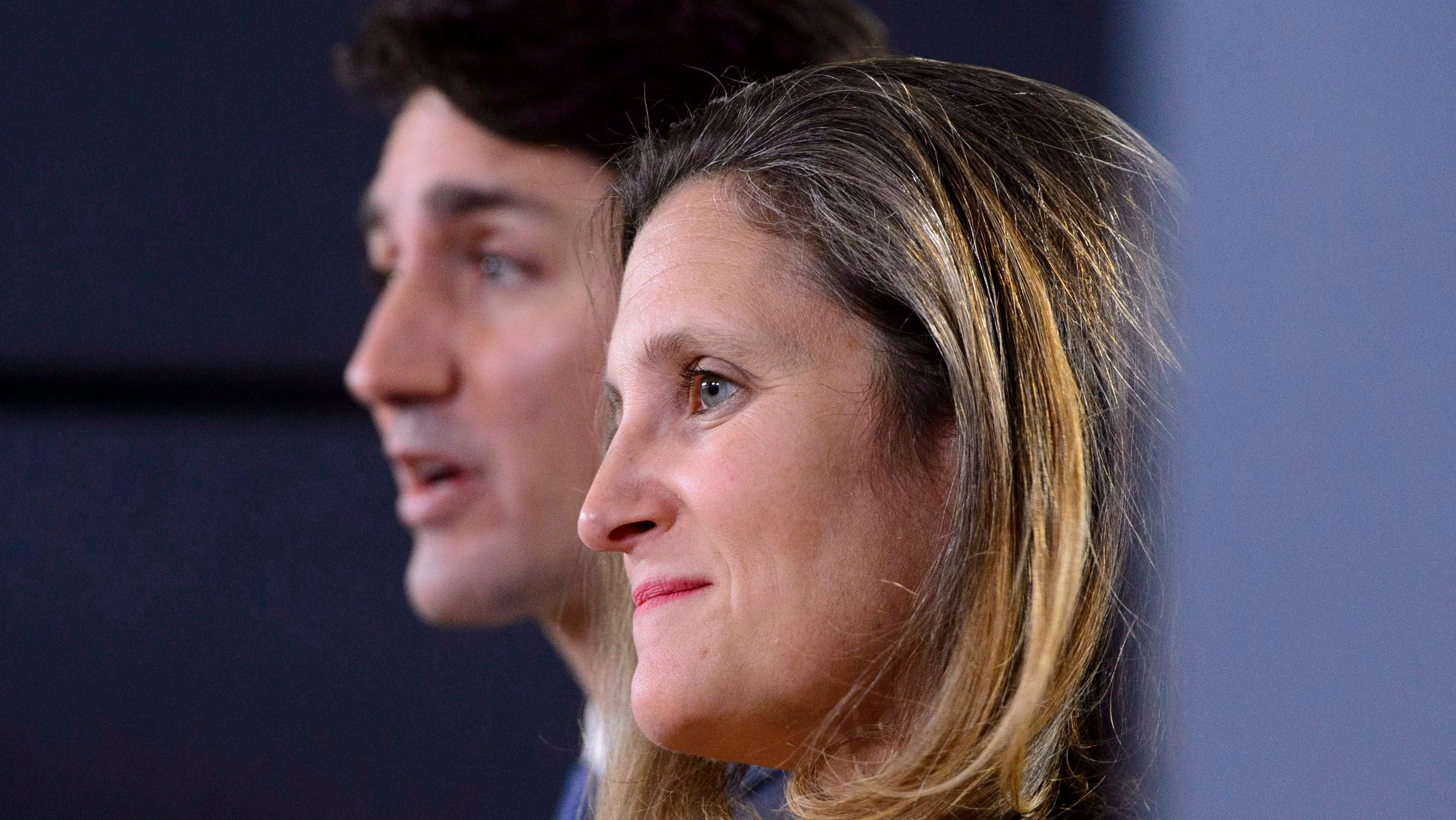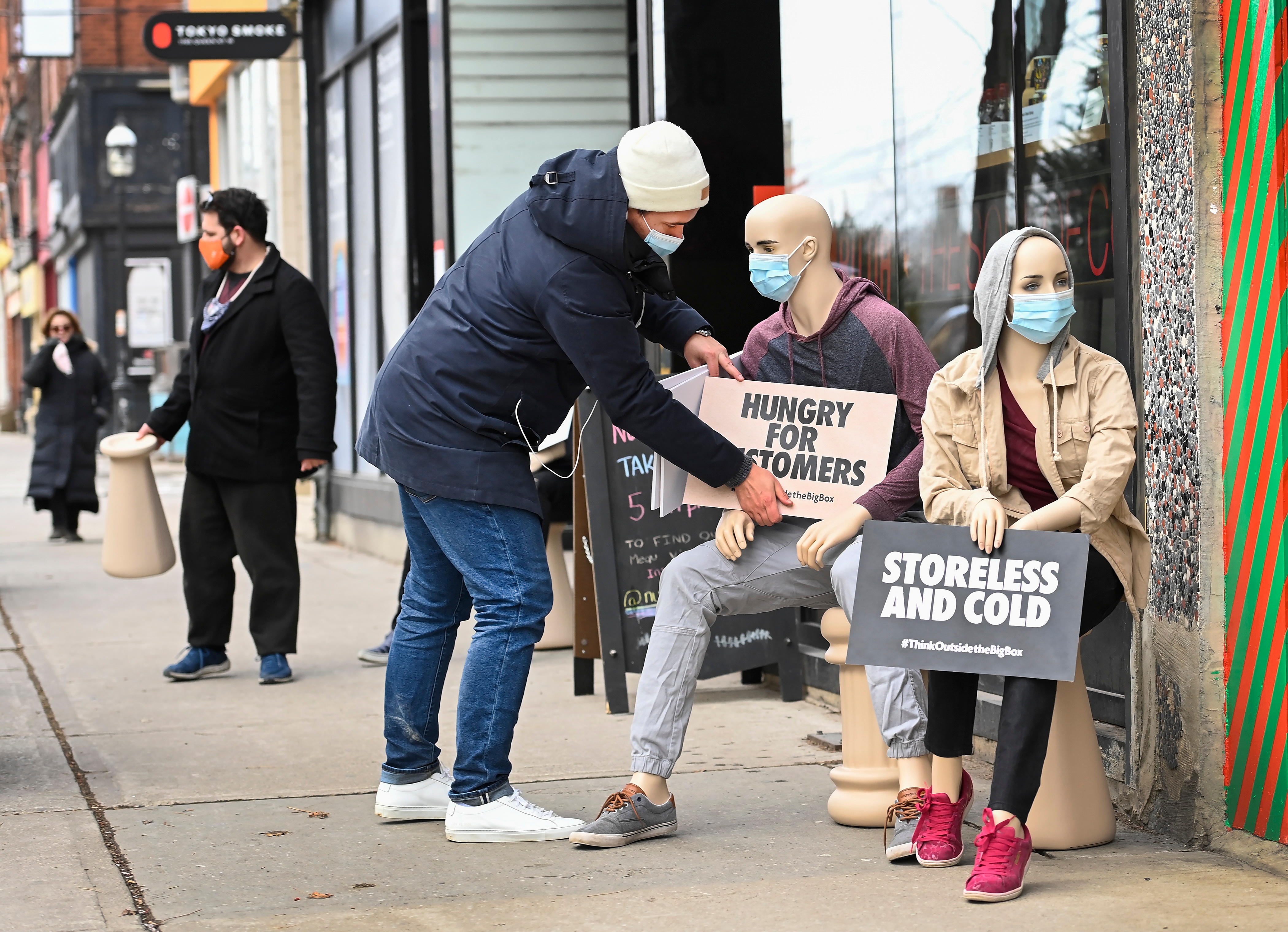Oct 19, 2021
Diverging opinions for Canada to extend or end pandemic relief
There is a case to be made for Ottawa pursue targeted fiscal support: Economist
As the clock ticks away towards the scheduled expiration of pandemic relief programs this week, a chorus of reports and statements from Canadian business stakeholders and independent economists are admonishing the federal government to extend them at the 11th hour.
But whether an extension or expiration of those funds beyond October will be better for Canada’s economic recovery and growth remains uncertain.
It’s an important decision that Ottawa has yet to reveal answers for, with just days left to go and no parliamentary approval required.
And it’s a decision where the stakes are high. Federal aid has been a lifeline for small and medium-sized businesses, which represent almost half of the country’s gross domestic product (GDP), according to the latest numbers from the Government of Canada.
Chrystia Freeland, finance minister and deputy prime minister, has not answered questions at her recent media availabilities about what exactly will happen come Oct. 23, when emergency wage and rent subsidies are set to expire.
However, Freeland has suggested that Prime Minister Justin Trudeau’s government will support tourism and events industries.

“We’re working on that,” Freeland said earlier this month. “We are going to be there for Canadians across the country in this fight against COVID. And we are providing support to the health care systems in the hardest-hit provinces, and we will provide economic support as needed.”
Here’s how different sides of the Canadian business community are feeling ahead of a final decision from Ottawa.
THE BANKING PERSPECTIVE
According to new figures from Scotiabank’s “Path to Impact” report, 51 per cent of small business owners say they expect they will need more emergency financing in the coming year.
On top of that, larger small businesses (those with over $1 million in revenue) see the need for financing more than smaller businesses (those with under $500,000 in revenue). That’s 68 per cent versus 30 per cent, respectively.
Still, more than half of businesses surveyed said they are doing as well or better than they were compared to 2019.
Jason Charlebois, senior vice-president of small business at Scotiabank Canada, said that shows there’s a lot of room for resilience in the future, despite the uncertainty in the next phase or phases of recovery.
“Obviously, within the banking system, we also offered a number of different relief programs to support businesses who were struggling with cash flow,” Charlebois said in a phone interview.
“Generally speaking, the programs that were put in by a number of financial institutions have been phased out now, and the stimulus from the government has carried the rest of the pandemic.”

Scotiabank’s perspective on the matter is that Ottawa should continue supporting small businesses. “But whatever decision is made, our position is that we’re here to help our clients in any way that we can,” said Charlebois.
“We will continue to help navigate and help our clients understand their challenges, even if there is no longer that support for them in the form of government programs.”
THE ECONOMIC VIEW
Stephen Brown, senior Canada economist at Capital Economics, believes the justification for household benefits “at least in their current form” no longer exists.
“Just looking at the labour figures and how there’s ample opportunity out there now, with many places struggling to find people they can hire, I’m not sure we can keep arguing to keep those programs as they are right now,” he said in an interview.
When it comes to support directly for businesses and rent subsidies, however, it’s a different argument altogether, he added.
“The problem is, we’re not sure how they’re going to react because we haven’t completely gotten out of the pandemic slumps yet,” said Brown.
“When the winter comes, which might likely cause another COVID wave, those businesses that haven’t stabilized yet are going to completely close if there’s no programs in place for them. And it just doesn’t make much sense to take it away now and then try to bring it back again — logistically or logically.”
There’s also other major risks to consider even with the expiration of the Canada Recovery Benefit, Brown said.
“The big drop in household incomes that we could expect out of that is daunting — not just on an individual basis, but for the double whammy it will cause some businesses who will lose out when incomes go down for people,” he added.
“It’s hard to see the economy breathing without any trouble if we see these government programs go away… Yes, Canada has been quite generous — almost too much, it can be argued — but keeping support a bit longer just seems to be the most decent cost-benefit trade-off in my mind for the long term.”
INDEPENDENT BUSINESS AND ADVOCACY
The Canadian Federation of Independent Business and the Canadian Chamber of Commerce continue to fiercely lobby the federal government to extend the same hand they are willing to give the tourism and events industry for all types of struggling companies.
In an open letter to Freeland, they called for an extension for the wage and rent subsidy programs. Both organizations highlighted the dire need for support, given that only about 40 per cent of independent businesses across Canada are making normal sales, per the latest figures from CFIB’s business barometer index.
That was Oct. 6. But Corinne Pohlmann, CFIB vice-president of national affairs, said Ottawa has yet to answer those calls.
“It’s scary even thinking what will happen when these programs aren’t there anymore,” Pohlmann said in an interview. “We’ve now seen the biggest drop since the pandemic began in optimism levels for businesses.”

Pohlmann said the uncertainty around upcoming restrictions is deeply worrying business owners she hears from regularly.
Most businesses do not want to rely on support, she believes, and would rather generate their own revenues. But the issue is not knowing what comes next, without fully stabilizing and with COVID-19 protocols or regulations still in effect, she said.
“It’s not that everyone that we saw access these programs earlier is still even taking them up now,” Pohlmann said. “The least we could do in that respect is provide some certainty to know that if you do need those supports, they will be there for you. And I mean, they’re already a far cry from the numbers they used to be.”
If Ottawa does decide to take away relief schemes now, the CFIB believes there will be a heightened number of bankruptcies, debt levels and closures.
“Let’s just say, the timing itself would also be quite interesting with Small Business Month,” Pohlmann said.
FOOD AND HOSPITALITY SECTOR
John Sinopoli, owner of Toronto’s Ascari Hospitality Group and founder of SaveHospitalty.ca, said his sector has not even truly begun its pandemic recovery. “So, to take away any relief now is nothing short of a slap in the face,” he said in an interview.
“That’s a fast track to bankruptcy that you’re just asking to happen.”
Sinopoli said as an owner and chef in Toronto, he’s seen firsthand how the “incomplete return” of people to downtown streets and offices, coupled with the lack of tourism numbers over the summer, is still causing major hurdles for businesses.

“The margins are just so very thin and you’ve still got these big hindrances to people getting in our doors with capacity limit protocols,” he said.
That’s why Sinopoli is personally advocating for more sector-specific support. “We are particularly vulnerable, and we are very much alone in our problems,” he said.
“And yet the fact is, we’re also a sure bet for the government, in that we will make a return on their investments. We will get up and we will rise out of this, if they’re smart with their money and their support for us.
“In essence: Be there for us and we will be there for you, without needing to close our doors and having you lose out on what makes the very fabric of our cities.”

